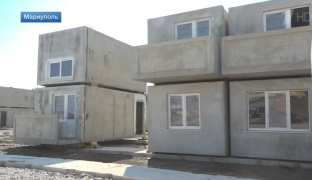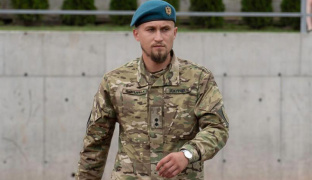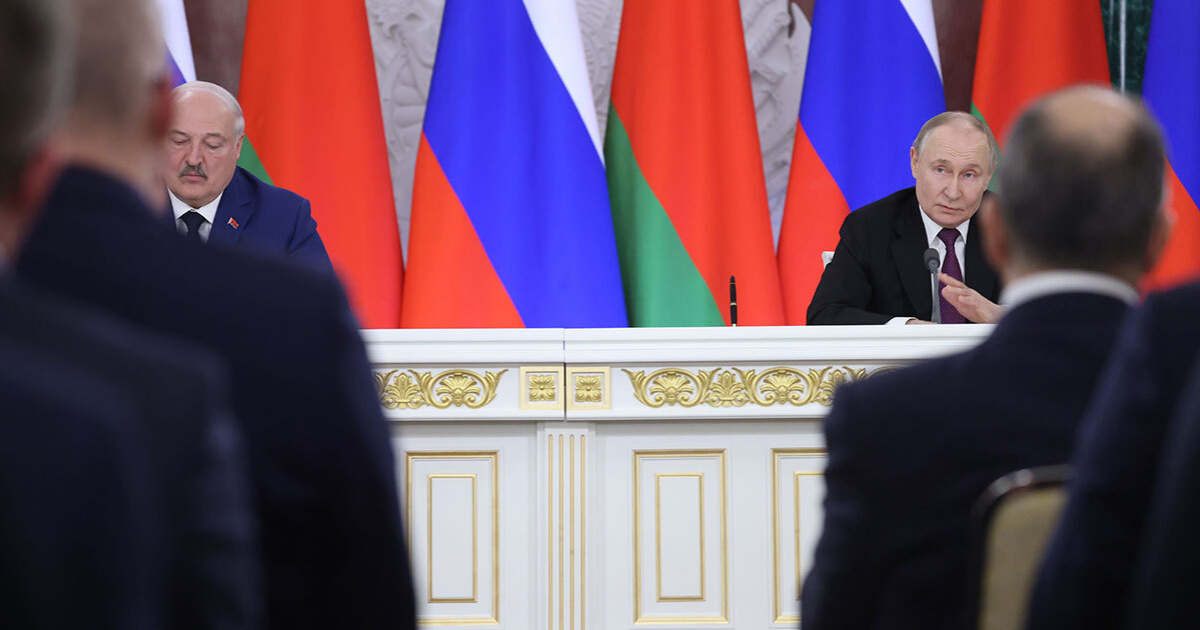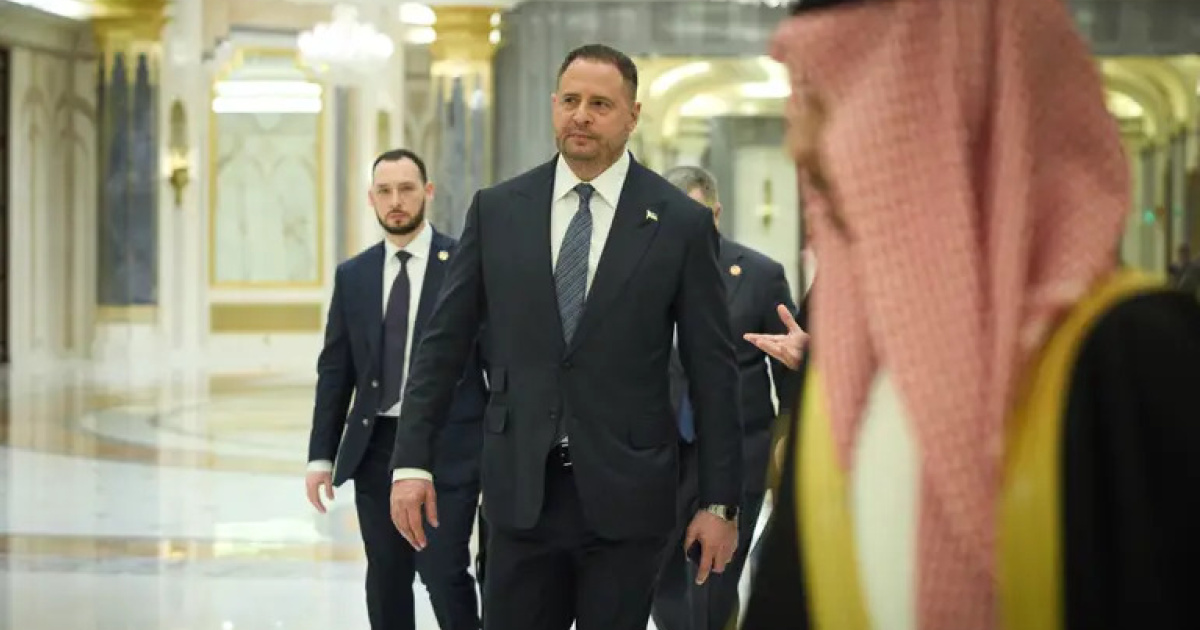
Lately, there have been reports in Ukraine's media about the protracted nature of the war and the corresponding need to intensify mobilization efforts. On one hand, this could be seen as a realistic and sober assessment of the situation; on the other hand, earlier statements suggesting that Ukrainians could spend this summer in Crimea seem somewhat inconsistent with the current government's discourse.
"This is not only felt by ordinary Ukrainians but also by government officials. Believe me, many members of parliament, ministers, and other officials thought that the war would end this year. In February-March 2023, when the counteroffensive was actively prepared, there were unofficial discussions about how much territory could be liberated. While not everyone believed in spending the summer in Crimea, everyone was confident about the summer on the 'border' with the peninsula. However, things did not go as predicted or expected. What we believed in is our own problem. There can be no military blame here; it's a cruel war, and we are not the only ones learning to fight; the enemy is learning too", - said an OstroV’s source from a mono-majority.
That's precisely why, the source believes, there have been recent reports in the information space about a long war that will span years and require even greater mobilization.
"This is not what we want. It's what Ukraine cannot do without. People have stopped voluntarily going to the draft boards – that's a fact, and there's no need to be afraid to admit it. Therefore, we are now witnessing a slow but steady tightening of the rules and an intensification of mobilization. These aren't new rules; it's an enhancement of the existing ones", - the MP noted.
Indeed, the rhetoric of the Ukrainian authorities and volunteers has significantly toughened in recent weeks. For example, Deputy Prime Minister Iryna Vereshchuk is calling on everyone to prepare for a long fight.
"How much longer will the war last? We must be honest. The path to victory in this war will be long and difficult. '2-3 weeks,' 'by the end of the year,' 'next spring' – all of that is not true. Citizens and the government – everyone must prepare for a prolonged and difficult war. Only then will we emerge victorious", - she wrote in her Telegram channel.
Volunteer and head of the Come Back Alive Foundation, Taras Chmut, directly calls on Ukrainians to prepare for the fact that "in one way or another, everyone will serve".
"We have a lot of people who have left, a lot of people who have suffered from the war. The defense forces number literally a million, and still, it's not enough. Because the war is so massive, the borders are so extensive, the frontlines are so long, and there are so many facilities that need protection in the rear, and so on", - says Chmut.
Official authorities hardly discuss the issues with mobilization. However, a quick look at social media reveals a plethora of chats and messages about draft notices being distributed on the streets. Moreover, a new trend has emerged recently - the compulsory visits to the Territorial Centres of Recruitment and Social Support (TCRSS) for "data verification". Typically, this practice is prevalent in smaller towns, but over the past month, it has been observed in larger cities as well, such as Lviv.
"Two military personnel drive along Zamkova Street, Opryshkivska Street, and Kryvonosa Street in a foreign-registered bus, representing the Shevchenkivsky TCRSS. Those with documents or reservations face no questions – they are let go. But those without them or with outdated information are taken for the Military Medical Commission (MMC)", - dozens of such messages can be found in Lviv's chats.
According to the head of the Lviv Oblast TCRSS, Oleksandr Tyshchenko, currently, only about 20% of the planned goal number voluntarily comes to the draft board.
"If these searches and sending people for data verification are not carried out, mobilization could be in jeopardy", - he admits.
Draft notices
In late July, the Verkhovna Rada extended the general mobilization in Ukraine until November 15, 2023.
"It's obvious that this won't be the last extension of mobilization. We've been made to understand that even in the event of successful counteroffensives by the Ukrainian Armed Forces or the start of negotiations, they won't be winding down mobilization anytime soon. Although there's another side to the coin. We laugh about how people in russia are unhappy with mobilization, but right now, there aren't long lines at our draft boards either. So, the process is walking a fine line - on one hand, we need to meet the quota, on the other, not to cross the line", - said a source in the Verkhovna Rada to OstroV.
He also reminded that at the beginning of 2023, parliament members from the Servant of the People party initiated a meeting of the Committee on National Security, Defense, and Intelligence. The main issue was the unsatisfactory mobilization methods.
"You won't find the outcomes of the committee meeting anywhere in the media. Because even then, the military made it clear that people couldn't be handed draft notices and forced to come to the TCRSS by other means. The mood among colleagues was quite disheartening at the time, so this topic was pushed aside", - the source noted.
According to Article 22, paragraph 3, of the Law of Ukraine "On Mobilization Training and Mobilization", citizens of Ukraine are obliged to appear upon summons at the Territorial Centres of Recruitment and Social Support during mobilization to clarify their registration data and determine their assignment for a special period.
Draft notices can be received by any male aged 18 to 60.
Debates about where draft notices can be handed out continue without end. According to Mariia Levko, the head of the press service of the Lviv Oblast TCRSS, there are currently no regulations specifying where draft notices can or cannot be handed out. Essentially, they can be personally handed to you anywhere: on the street, at a checkpoint, at your workplace, at your place of residence.
"Draft notices can be handed out by representatives of local self-government, heads of enterprises, institutions, and organizations where draftees work, as well as managers of multi-apartment buildings. Also, draft notices can be directly handed out by officials of the TCRSS", - she claims.
Currently, there are four types of draft notices in Ukraine:
1. Summons for data clarification: These notices are issued to update and verify information about family composition, the health status of conscripts, places of employment, etc.
2. Summons to pass the military medical commission: These notices, bearing the signature of the head of the TCRSS, require individuals to undergo a medical examination.
3. Draft notices for compulsory military service: These summons entail conscription into compulsory military service. However, they are not currently issued due to ongoing mobilization, as compulsory military service in the Ukrainian Armed Forces and other military formations is not conducted at present.
4. Mobilization order: This draft notice is handed to conscripts after they have successfully passed the medical examination and are found fit for military service.
Military authorities emphasize that receiving a draft notice does not automatically mean immediate deployment to the front lines.
"Visiting the TCRSS is not an automatic deployment to the army. It is essential to understand that this involves a series of procedures, including a medical examination. Those who have legitimate reasons, such as health conditions or other grounds, will not be drafted into the army", - noted the head of the Lviv Oblast TCRSS, Oleksandr Tyshchenko.
However, the reality differs significantly. The majority of Ukrainians fear visiting the draft board, a sentiment even acknowledged by the Ministry of Defense, which recently launched an information campaign titled "Update Your Data at the Territorial Centres of Recruitment and Social Support".
Through this campaign, the Ministry of Defense aims to motivate Ukrainians to update their personal information at the draft boards. During the campaign presentation, Deputy Minister of Defense Hanna Maliar explained that the Ministry had recognized that people avoid updating their data out of fear. She emphasized that the primary idea behind the campaign is that acknowledging one's fears is a courageous act, and the armed forces need courageous individuals.
As part of the campaign, informational materials featuring well-known Ukrainian military personnel from the Ukrainian Armed Forces will be distributed. These military personnel will openly admit their fears while also highlighting how they overcome them.
Information materials will be broadcasted in the national Ukrainian news TV marathon and on other television channels, on the radio, in cinemas, on digital outdoor advertising screens, on trains, as banners on partner websites, on the Ministry of Defense and Ukrainian Armed Forces social media pages, and other platforms with which negotiations are ongoing.
Additionally, the employees of the TCRSS emphasize the responsibility for not showing up at the military enlistment office in response to a summons. However, they admit off the record that this alone doesn't scare people much.
"Well, we handed out the draft notice, and the person just threw it away and went on with their day. The maximum they can face is a small fine. And even then, try to find them afterward and issue that fine. That's why we need other methods", - told OstroV one of the military personnel who worked in one of the Lviv TCRSS for several months.
It is worth reminding that failure to respond to a summons to the TCRSS can result in administrative fines or criminal liability. As of today, the fines remain unchanged.
Failure to respond to a summons to a Territorial Centre of Recruitment and Social Support for the first or second type of draft notices is punishable by an administrative fine in the amount of 100 to 200 non-taxable minimum incomes of citizens (1,700-3,400 UAH), and in the case of a repeated violation within a year, the fine ranges from 200 to 500 non-taxable minimum incomes of citizens (3,400-8,500 UAH).
Only ignoring draft notices of the third or fourth type can lead to criminal liability ranging from restriction of freedom for up to 3 years to imprisonment for 3 to 5 years.
Regarding periodic rumors about summons being issued through the Diia app, as of August 2023, such an option is not being considered.
"No, nothing has changed recently. This is the fundamental position of the Ministry of Digital Transformation and Minister Fedorov. There are no plans to issue summons through Diia, as far as I know. However, there is consideration of displaying deferments from mobilization in Diia. For example, when making employee reservations at a company", - said a source from the President's team speaking to OstroV.
Intensification of mobilization
Talks of either easing or intensifying mobilization in Ukraine have not ceased since it was announced.
Sources within the President's team claim that there won't be significant changes in the mobilization process until the end of the year.
"What is happening now is a slight intensification of the mobilization measures that have existed before. There won't be anything new for now. However, everything will depend on the situation on the front lines and how the mobilization plans are being executed. There are currently clean-up operations in the military enlistment offices, and there will be high-profile cases and revelations, but all of this is part of a program to increase trust in the TCRSS", - they note.
According to Vyacheslav Chaus, the head of the Chernihiv Oblast Military Administration, there are no plans to tighten mobilization measures starting from August 1st, and the measures will remain unchanged.
"We have quite a few draft dodgers who are currently on the wanted list. They are being sought and brought to the military enlistment offices. I believe that it is the duty of every person today to defend their homeland", - he said.
For example, in the Chernihiv oblast alone, in just six months of 2023, there have been over 20,000 reports to the police about draft dodgers. According to Oleh Honcharuk, the head of the Chernihiv Oblast TCRSS, this is almost as many as the number of people mobilized in the oblast after the full-scale invasion.
And while the methods of mobilization remain unchanged for now, the TCRSS are expecting significant changes. According to Defense Minister Reznikov, they are in for a "serious digitalization" in autumn.
"We estimate that in the middle of autumn, we will move towards a more serious digitalization of the TCRSS. Today, we are in the process of signing joint orders with other agencies for mutual information exchange", - he said.
According to him, this will enable automatic data exchange between the registries of the Ministry of Justice, the Ministry of Internal Affairs, the Central Election Commission, the Ministry of Foreign Affairs, and the State Border Guard Service.
However, this is not aimed at tightening mobilization but at reducing corruption in the recruitment offices.
Yehor Chernev, Deputy Chairman of the Committee of the Verkhovna Rada of Ukraine on National Security, Defense, and Intelligence, assures that there are currently no plans to change the law on mobilization.
"The system will work as it did before. From our side, we are working to ensure that it actually works and does not corrupt recruitment officers due to evasion of mobilization. Our task is to make sure that the rules and conditions are the same for everyone, and we are working on that", - he said.
When asked by a journalist whether it's possible that all eligible men will have to fight, he replied that it will depend on how long the war continues and how many resources russia deploys to sustain it.
"But if the country is in danger, and there is a real threat to losing statehood, then everyone will go to the military, as it happened on February 24, 2022. I believe it's every man's duty to defend his own country. However, at the present moment, we are not discussing this scenario. We have the resources to deter the russians in the east and south of Ukraine", - Chernev added.
The Ukrainian parliament periodically makes changes to the mobilization process. However, not all legislative initiatives are implemented.
In late June, the Verkhovna Rada of Ukraine tightened the rules (law № 9342), according to which conscripts are granted a deferral from mobilization. Prior to these changes, individuals with a spouse, parents, or parents-in-law with a disability of 1 or 2 groups were automatically exempt from mobilization. Now, this will only be possible if there are no other able-bodied individuals who can support them.
Separately, parliamentarians decided to tackle the issue of teenagers traveling abroad. Currently, the discussion revolves around restricting the independent travel of teenagers aged 16 to 18. A corresponding bill has already been introduced in the Verkhovna Rada. Moreover, there are increasing reports that Ukrainian border guards are refusing to allow 17-year-old boys to leave the country if they are not registered at the TCRSS.
In early August, the Verkhovna Rada registered bill № 9566 to expand the possibilities for mobilizing citizens into military units and for performing work of a defense nature that ensures the functioning of the national economy in conditions of martial law. The author of the initiative is MP Heorhii Mazurashu from the Servant of the People party.
In addition to other measures, there is a proposal to grant communal workers and homeowners the legal right to hand over draft notices to eligible men. It is suggested that they be allowed to collect information about conscripts and facilitate their arrival at the TCRSS.
The bill also introduces an obligation for conscripts, conscripted individuals, and reservists to report to the TCRSS within seven days of the announcement of general mobilization to update their registration information.
Furthermore, the proposed law grants the National Police the authority to bring violators of military registration rules to the TCRSS.
However, the document also provides the option to refuse military service on personal or religious grounds. Those who submit a statement expressing their unwillingness to serve in combat will be assigned to defense-related work (this provision does not apply to citizens who are officially employed or engaged in entrepreneurial activities).
"This is a realistic, wise, and pragmatic approach that will inevitably have a comprehensive positive effect and allow us to be stronger in countering russian aggression. In the public eye, this is referred to as 'mobilization of common sense'", - the explanatory note to the bill states.
However, OstroV’s sources in the mono-majority are skeptical about the prospects of this bill being passed.
By Andriy Andrieyev, OstroV




